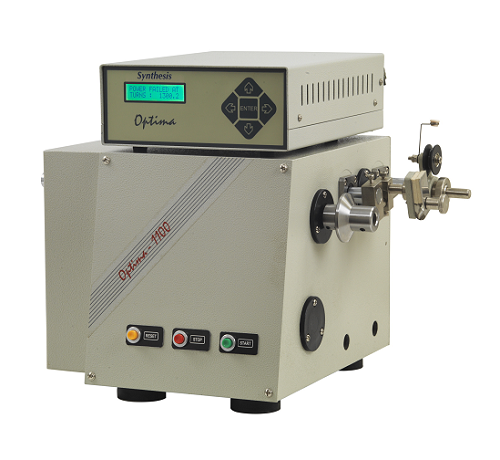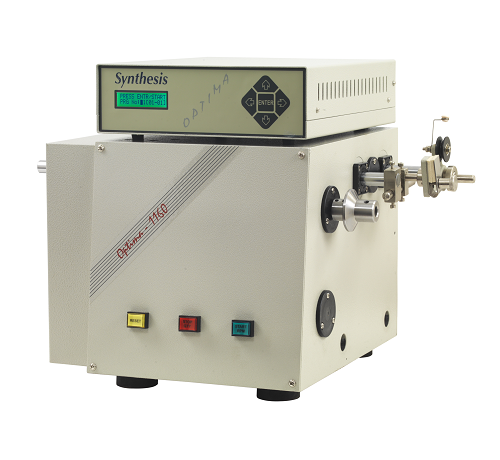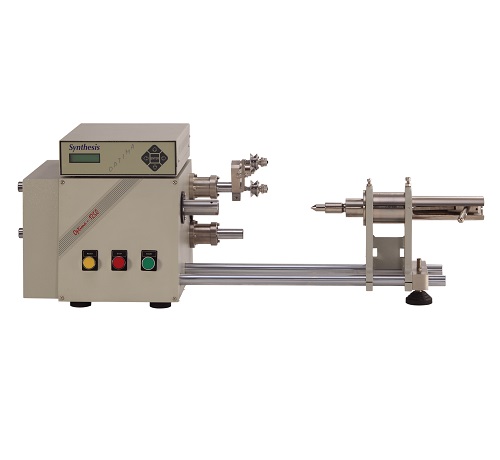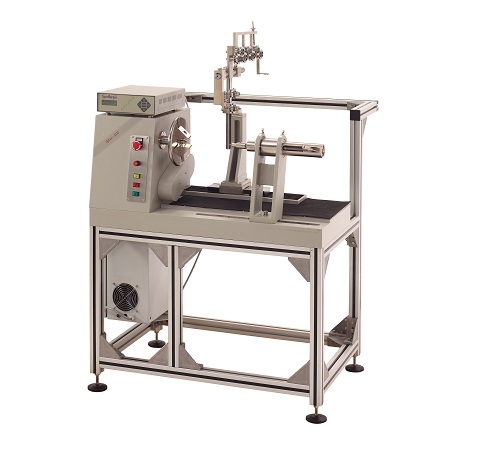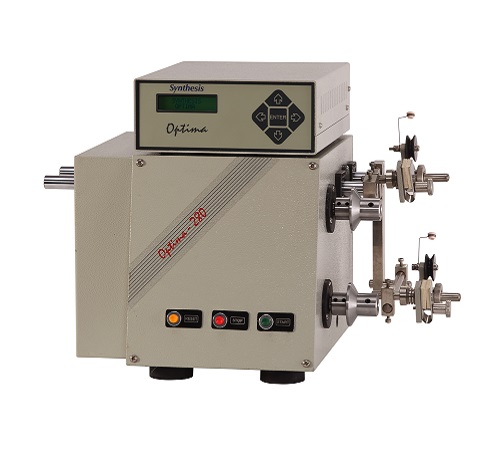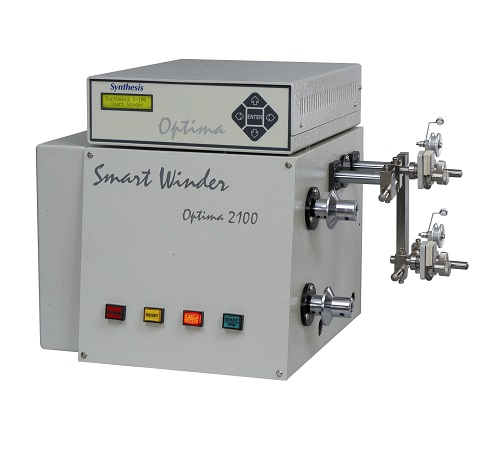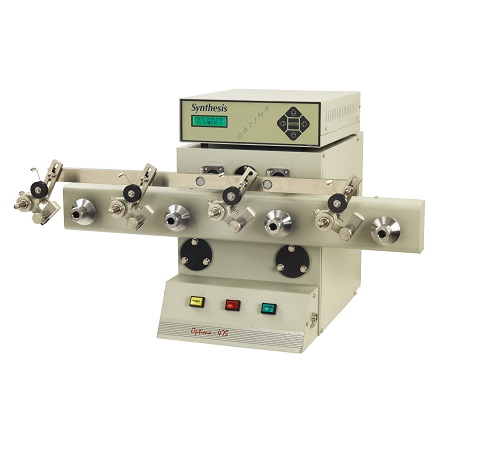Linear Winding Machine
A linear winding machine is a specialized device used in the manufacturing of linear coils, which are essential components in various applications including electromagnetic devices, sensors, actuators, and more. Linear coils generate magnetic fields that interact with other components to produce motion or electrical signals. The linear winding machine automates the process of winding wire in a linear fashion around a core or form, ensuring precision, consistency, and efficiency in the production of linear coils.
Features of Linear Winding Machines:
Automated Linear Winding : Linear winding machines automate the process of winding wire in a linear path along the core or form, ensuring uniform and precise winding.
Variable Speed Control : These machines offer variable speed controls to accommodate different wire types, gauges, and winding requirements.
Tension Control : Tension control mechanisms maintain optimal wire tension during the winding process, preventing slack or wire breakage.
Wire Guide Systems : Advanced wire guide systems help position the wire accurately on the core or form, minimizing the risk of overlapping or misplacement.
Programmable Parameters : Many machines allow users to program winding parameters, including wire diameter, winding length, and layering options.
Customizable Core Compatibility : These linear winding machines can accommodate various core shapes and sizes, providing versatility in manufacturing.
Counters and Sensors : Linear winding machines feature counters and sensors to track the length of wire wound, ensuring accuracy.
Benefits of Linear Winding Machines:
Precise Linear Winding : Linear winding machines ensure accurate and consistent winding along a linear path, resulting in high-quality linear coils.
Time Efficiency : Automation speeds up the winding process, enhancing overall production efficiency and reducing manufacturing time.
Material Utilization : Accurate winding reduces material waste and optimizes resource utilization.
Enhanced Quality Control : These machines minimize the risk of human errors, resulting in higher product quality and fewer defects.
Applications of Linear Winding Machines:
Actuators and Solenoids: Linear coils are used in actuators and solenoids to produce controlled linear motion.
Sensors : Linear coils are essential components in sensors that detect changes in magnetic fields or generate electrical signals.
Electromagnetic Devices : Linear coils are utilized in various electromagnetic devices, including linear motors and generators.
Magnetic Field Assistance:
Magnetic coilers utilize magnetic fields to guide and facilitate the winding of wire around the core, ensuring uniform and controlled winding.
Variable Speed Control:
These machines offer variable speed controls to adapt to different wire types, gauges, and winding requirements.
Tension Control:
Advanced tension control mechanisms maintain optimal wire tension during the winding process, preventing wire slack or breakage.
Wire Guide Systems:
Magnetic coilers are equipped with precise wire guide systems that help position the wire accurately on the core, minimizing the risk of overlapping or misplacement.
Programmable Parameters:
Many machines allow users to program winding parameters, including wire diameter, turns count, layering, and more.
Customizable Core Compatibility:
These magnetic coilers accommodate various core shapes and sizes, offering versatility in component manufacturing.
Automated Counting and Sensors:
Magnetic coilers feature counters and sensors that track the number of windings, ensuring accuracy in production.
Benefits of Magnetic Coilers:
Precision and Consistency: Magnetic coilers ensure consistent and precise winding, leading to the creation of high-quality electromagnetic components.
Time Efficiency:
Automation speeds up the winding process, enhancing overall production efficiency and reducing manufacturing time.
Optimized Resource Utilization:
Accurate winding reduces material waste, contributing to efficient resource management.
Enhanced Quality Control:
These machines minimize the risk of human errors, resulting in higher product quality and reduced defect rates.
Applications of Magnetic Coilers:
Electromagnetic Components: Magnetic coilers are used in manufacturing coils, inductors, solenoids, and other electromagnetic components for various industries.
Telecommunications:
Coils used in communication devices, antennas, and signal processing equipment benefit from the precision of magnetic coilers.
Power Generation:
Magnetic coilers are utilized in the production of inductors and coils for generators and alternators.
Automotive Industry:
Components such as ignition coils and sensors in automobiles rely on the accurate winding provided by magnetic coilers.
Conclusion:
In conclusion, linear winding machines are vital tools in the production of linear coils, which play a critical role in electromagnetic devices, sensors, actuators, and more. The automation, precision, and programmable capabilities of these machines enhance production efficiency, product quality, and customization options. Linear winding machines contribute to the reliability and performance of various industries by delivering high-quality linear coils that meet strict standards of accuracy and consistency.


